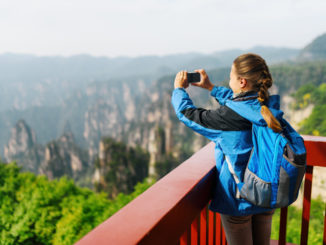
- From toiletries and towels to mattresses and mini-fridges, certain guests take more than they are entitled to
- The petty pilferers taking anything that would otherwise be disposed of should consider the environmental impact of their actions. As far as most hotel guests are concerned, the miniature moisturiser and sample-size bottle of shampoo are theirs for the taking. In some instances, so too are the toilet rolls, dressing gowns, towels; everything but the bathroom sink. But what exactly is fair game, what remains off-limits and how many of us have helped ourselves to more than we are entitled to when checking out?
According to a recent survey conducted by Japanese television station Fuji TV, almost two-thirds of Chinese tourists professed to pilfering from hotel properties; of the 100 people polled, 63 admitted their guilt. A 2015 study by Travelzoo found that 69 per cent of Americans had admitted to such indiscretions, while one conducted by booking site Hotels com concluded that Argentinian and Singaporean tourists had the stickiest fingers.
A report in Taiwanese English-language daily Taiwan News about the Fuji TV findings explained that the items most commonly appropriated by Chinese guests included toothbrushes, slippers, hair dryers and toiletries. But with the exception of electrical devices, aren’t the other objects intended for guests to use until they can be used no more?
Indeed, hotel-branded “souvenirs” such as these practically promote expropriation, having been designed to evoke fond memories of a stay with every subsequent use.
The American Hotel & Lodging Association has estimated that hotel thefts cost properties about US$100 million a year, although the Taiwan News report puts monthly losses at Japanese hotels at a modest US$179 per property. Regardless, whether taken home or not, all those miniature plastic bottles and toothbrushes will eventually be on their way to landfills, costing the Earth even more than the hospitality industry.
A poo-themed museum pops up in Japan
The Land of the Rising Sun reigns supreme when it comes to Insta-friendly installations, from teamLab’s immersive exhibitions “Borderless” and “Planets”, to queen of contemporary art Yayoi Kusama’s eponymous museum, in Tokyo, and Naoshima, an island given over to art in the Seto Inland Sea. Now, Yokohama adds a destination of class and distinction to the mix, the poo-themed Unko Museum.
Needless to say, this is excrement of the emoji variety, as opposed to less photogenic fecal matter, and it comes complete with its own mascot, Unberuto, a walking turd that totes a toilet. Within the museum is also a ball pit centred around a giant pastel-hued pile of poo and an interactive art exhibition, providing ample opportunity to get something for the ’gram.
126 Thais arrested for taking advantage of tourists

The Grand Palace consistently ranks as one of the best things to see in Bangkok, Thailand, and is among the most-visited attractions in the country. However, a number of online reviews note that the royal complex is too crowded, people are pushy and that everything has been designed to encourage travellers to part with their money. And it seems that the authorities agree.
Thai newspaper The Nation reported that 126 people had been arrested for allegedly extorting tourists around the Grand Palace, a figure that included taxi drivers who refused to use their meters and street vendors who overcharged non-Thais.
This is not the first crackdown around the attraction. In June, 139 touts and tuk-tuk and taxi drivers were detained for tricking tourists and warned they would lose their licences if they were reprimanded again, according to news site Coconuts.
Small-scale scams are not uncommon in Bangkok. Indeed, there are entire websites dedicated to uncovering them, most of which advise against believing anything that seems too good to be true. It almost certainly is.
By Mercedes Hutton



